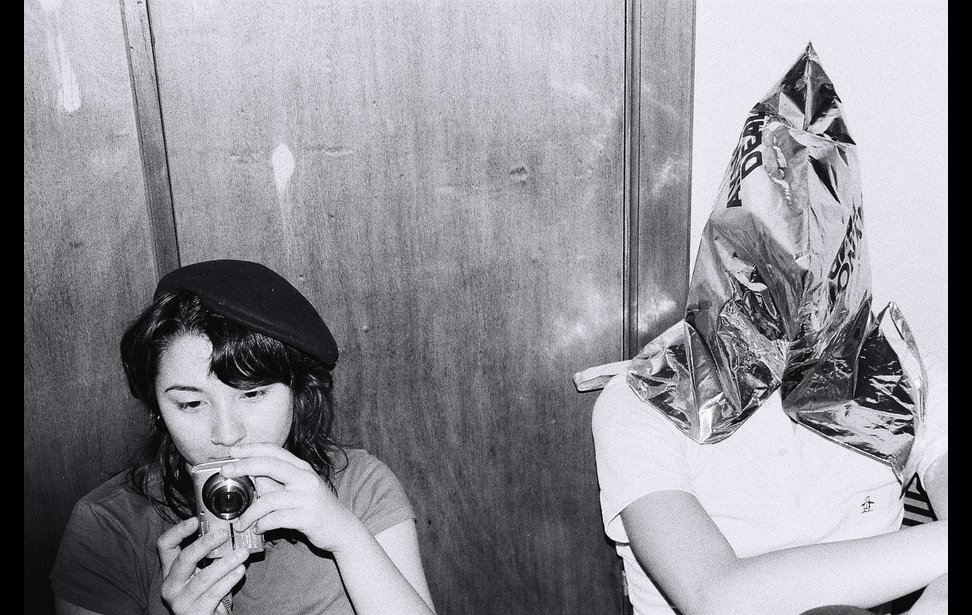Starting Out and Breaking In: An Eye On Going Pro With Photographer Eugenia Fajardo
SÃO PAULO, BRAZIL – Even though you're young, hungry, and still in school doesn't mean you can't start working in your field for something a bit more lucrative than experience. Eugenia Fajardo (as seen in photo 1) is nearing completion of her studies, but has managed to work up an impressive resume in various photographic areas while maintaining a personal portfolio of strictly artistic pieces. She likens her early success to an indomitable desire to work in her chosen field of photography and possibly, because of her good manners.
thalo: How did you discover that you wanted to become a photographer?
Eugenia Fajardo: It happened when I was actually in fashion school. I realized that all my work had photographic references. And by this time I was simultaneously taking a course in fashion photography…
th: Okay, so how has your education helped you in building your career?
EF: Well, both of my parents are visual artists, so my contact with art has always been very intense. But it's for that very reason that being in the field of photography helped me to express myself independently. Photography school helped me to create a great technical repertoire—which is great!
th: Has taking classes made anything more difficult for you?
EF: The problem with classes is that it really doesn't leave me much time to work.
th: But you have managed to get a considerable amount of work while finishing school. What were some of your first paying photography jobs?
EF: I started with fashion photography, doing lookbooks for stores and brands and then I had an invitation to do some runway stuff. Afterward, I started to shoot some nightlife events at clubs, but then I also moved on to gastronomy work. It was something that came naturally and I really enjoyed it, mostly because I could work with both with natural and artificial lighting. As at first I didn’t have a lot of equipment, but it all worked out just fine.
th: What's your setup like--what equipment do you use for your various jobs?
EF: I have a digital camera, a Nikon D40, I have two studio flash lights, tripods and flashes. Depending on the job, I may use the lights or not. I also use various computer editing programs.
th: How would you describe your work and the development of your own personal style?
EF: I had a lot of freelance jobs, but nowadays, I make most of my income by photographing works of art. Yet since the beginning I've kept doing my personal work, which is a documentary style incorporating photos from my teenage years up to today; I focus on my friends and details of everyday life. It’s a more artistic style I've been developing, and it's the one I like to work with the most. I think my real interest is people. Even though some of my documentary pictures don't contain any people—only objects—they're still about people’s lives (see photos 2 - 11).
th: Going back to fashion: what do you enjoy most about that type of work?
EF: Being able to shoot people and work together with models to create the finished product. There is something very attractive and exciting in creating the fashion image together.
th: You've also done photo work in gastronomy (see photos 12 - 14). What are the biggest challenges with capturing food?
EF: The hardest thing about shooting food is the production. I've always done it by myself with the client standing there. One thing you learn is that some food withers after being exposed or that some dishes just look better if they're shot raw. Salads and greens wilt, creamy foods settle and then sink down in their bowls. Desserts can shrink too, especially if it's hot.
th: In your experience, what material is most difficult for new photographers to shoot and for what reasons?
EF: Depends on what area it's in. Every job has its own problems. What's actually most important for a young photographer is knowing how to establish a price for your work. That's something that's not given enough attention in college—even though I learned how to do it there. You have to remember to calculate the depreciation of the equipment value from its use, to figure out your fixed costs, like your salary. And then your variable costs, like if you employ a makeup artist, or you have to pay for a location. It sounds more complicated than it is really, but it helps a lot if you plan it out.
th: So then what do you think are the biggest difficulties facing young photographers like you?
EF: Breaking into the market. Besides being a niche market—just like in art or fashion—you need to have a strong mark to make yourself stand out from the competition.
th: Any advice for anyone looking to make a career for themselves in photography that you wish someone told you when you first got started?
EF: Photography takes passion. It's not enough to shoot just because you bought a camera. You've got to have a strong will because it's not easy to find a job when you're starting, but if you insist you're going to get in the field somehow. Another thing: always be polite and respectful. In photography—like in any other job—you have to treat people well.
Photo 1 courtesy of Carolina Botana
Photos 2 - 14 courtesy of Eugenia Fajardo





















